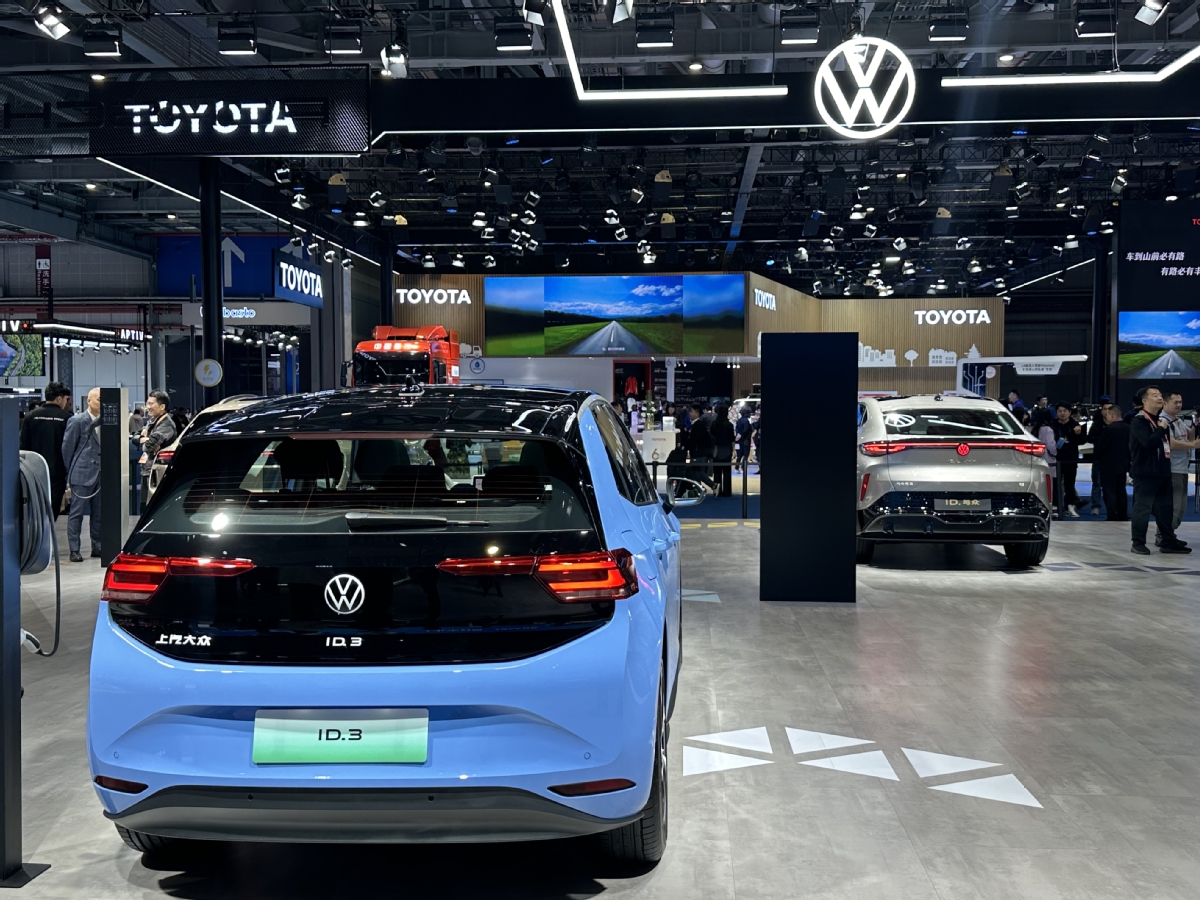
Major overseas carmakers showcased their latest products and technologies at the seventh China International Import Expo, which concluded on Sunday, a sign of their commitment to the world's largest vehicle market.
"China is our single biggest market, so it's our most important market," said Audi AG CEO Gernot Doellner on Tuesday.
As Audi accelerates its electrification strategy, the CIIE serves as an ideal platform to display the latest innovations and interact with Chinese consumers.
Audi displayed two important models at the expo: the Audi Q6L e-tron and the Audi e-tron GT. These electric models reflect the carmaker's ambitious electrification plan, targeting a fully electric lineup within the next decade.
Doellner said Audi is working with Chinese carmaker SAIC to develop a series of models exclusively for the Chinese market, starting with three new electric models that will integrate local consumer demands with Audi's high standards of quality and performance.
"These models are being developed exclusively for the Chinese market, targeting customers who seek a premium, intelligent mobility experience and want the latest innovations from the Chinese ecosystem," Doellner said.
With China's evolving market trends, Nissan is accelerating its electrification efforts, planning to launch eight new energy models, including five under the Nissan brand, by fiscal year 2026 to meet consumer needs.
Isao Sekiguchi, Nissan's corporate vice-president, emphasized the plan at the CIIE on Wednesday.
The Japanese carmaker displayed a range of models at the CIIE, including two electric concept cars, a robotaxi and a six-seater flagship SUV, demonstrating its vision of "driving innovation to enrich people's lives".
Notably, Nissan has been a trailblazer among foreign automakers in China's autonomous driving sector.
Its autonomous taxi fleet has covered over 140,000 kilometers in pilot operations in Suzhou, Jiangsu province, showcasing Nissan's dedication to this field.
Sekiguchi, who has been in China for just six months, said he is impressed with the government's support in terms of smart city infrastructure.
He added that the close cooperation between the carmakers, technology companies and governments is making China a unique and attractive market.
Nissan has also highlighted its sustainable practices at the CIIE. Through close partnerships with 540 automotive parts suppliers in China, the carmaker has been advancing green export initiatives, including recyclable packaging, low-carbon transportation and electrification facilities.
These efforts reduce CO2 emissions in China by over 12,000 metric tons annually, said Sekiguchi.
In a new collaboration with Tsinghua University, Nissan will launch a Vehicle-to-Everything energy management pilot project in Shanghai next year, aimed at improving energy reuse and supporting a low-carbon future.
German sports carmaker Porsche wowed the audience with a 911 Turbo (930) shipped from Stuttgart to Shanghai and an electric Macan Turbo. The 911 Turbo (930), the first production sports car globally with an exhaust gas turbocharger, not only launched a new era in sports car technology but also became a timeless classic, celebrated for its performance and distinctive design.
Though "turbo" once referred specifically to turbo-charging technology, Porsche has retained the term for its most powerful models in the electric age. This reinterpretation of "turbo" reflects the brand's ongoing pursuit of top-tier performance, said the carmaker, citing the example of the electric Macan Turbo.
"Porsche has a special connection with the Turbo. Our electric models continue this tradition, reflecting the brand's rich history in sports car manufacturing and our unwavering commitment to driving excellence," said Alexander Pollich, president and CEO of Porsche China.
He said the CIIE was a key platform for the brand to connect with Chinese consumers and showcase its latest innovations.
"As the world's first import-themed, national-level expo, the CIIE provides an excellent platform for Porsche. Porsche aims to enhance communication and interaction with Chinese consumers, while presenting Porsche's newest developments," Pollich said.
Another German carmaker, BMW, showcased six high-performance M models at the event.
Sean Green, president and CEO of BMW Group Region China, said: "Regardless of drivetrain, BMW will continue to pursue sheer driving pleasure."
"We are firmly convinced that through open innovation and cooperation with China's leading tech players, we can create products tailored to the needs of Chinese consumers, making a mobility experience that is human, intelligent and responsible," he said.
This year's BMW booth also featured an area dedicated to the Neue Klasse models. The Neue Klasse embodies advancements in design, technology and philosophy, pushing the BMW Group into the future.
Innovations in the Neue Klasse will be applied in all BMW models. The first locally produced Neue Klasse model will roll off the line in Shenyang, Liaoning province, starting from 2026.
Hydrogen fuel cell vehicles were highlights as well. One of South Korean carmaker Hyundai's exhibits was its Nexo SUV, with a powertrain consisting of a hydrogen fuel system, a hydrogen fuel cell and an electric motor.
Japan's largest carmaker Toyota showed its TL Power 150 high-power hydrogen fuel cell system and 260kw fuel cell system, which are mainly used in buses and trucks as a green and clean alternative to diesel vehicles.
